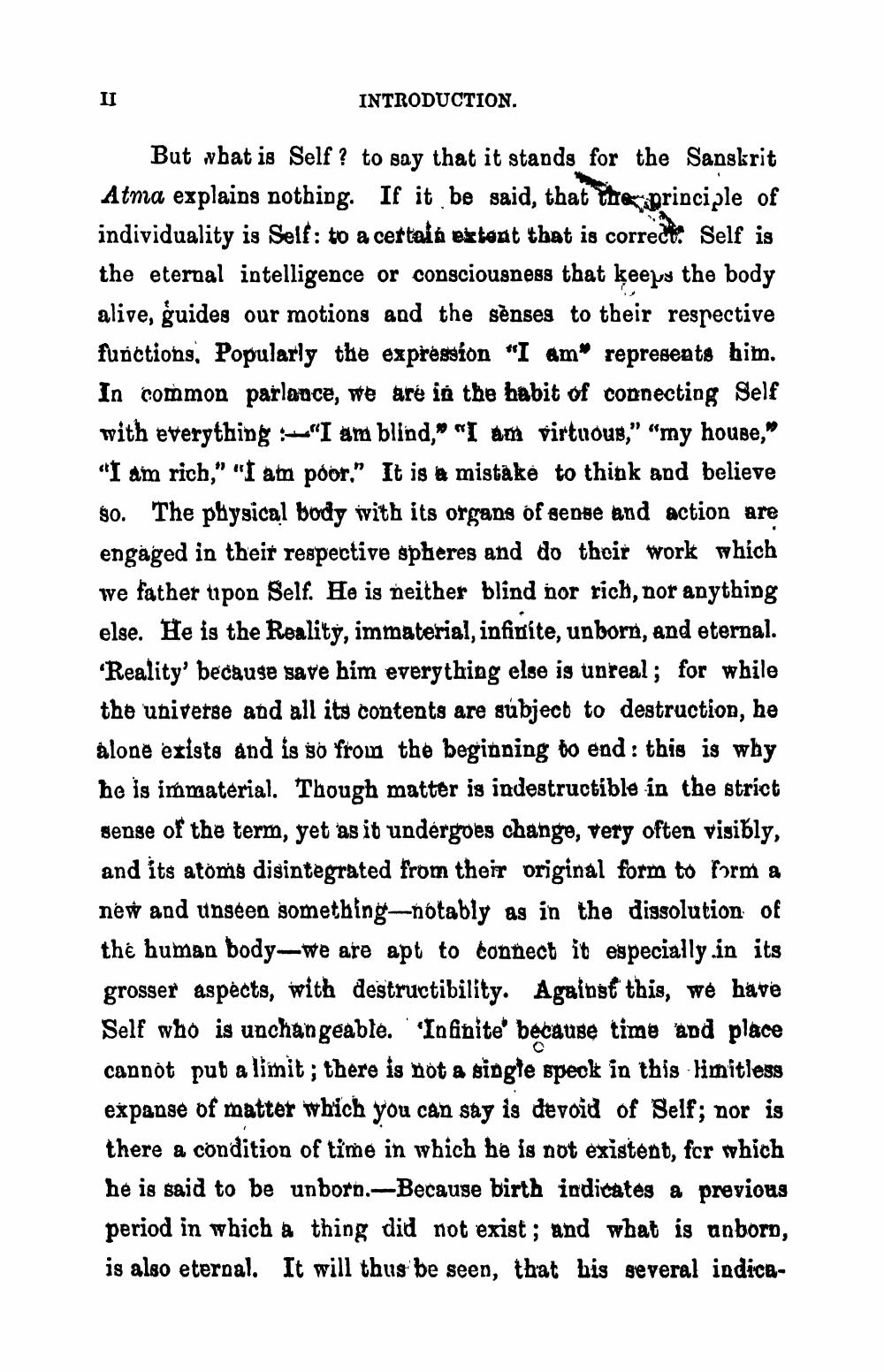Book Title: Vicharmala Granth Satik Pustak 1 to 8 Author(s): Anathdas Sadhu, Govinddas Sadhu Publisher: Heeralal Dhole View full book textPage 7
________________ II INTRODUCTION. But what is Self? to say that it stands for the Sanskrit Atma explains nothing. If it be said, that the principle of individuality is Self: to a certain extent that is correct: Self is the eternal intelligence or consciousness that keeps the body alive, guides our motions and the senses to their respective functions. Popularly the expression "I am" represents him. In common parlance, we are in the habit of connecting Self with everything:-"I am blind," "I am virtuous," "my house," "I am rich," "I am poor." It is a mistake to think and believe so. The physical body with its organs of sense and action are engaged in their respective spheres and do their work which we father upon Self. He is neither blind nor rich, nor anything else. He is the Reality, immaterial, infinite, unborn, and eternal. 'Reality' because save him everything else is unreal; for while the universe and all its contents are subject to destruction, he alone exists and is so from the beginning to end: this is why he is immaterial. Though matter is indestructible in the strict sense of the term, yet as it undergoes change, very often visibly, and its atoms disintegrated from their original form to form a new and unseen something-notably as in the dissolution of the human body-we are apt to connect it especially in its grosser aspects, with destructibility. Against this, we have Self who is unchangeable. 'Infinite' because time and place cannot put a limit; there is not a single speck in this limitless expanse of matter which you can say is devoid of Self; nor is there a condition of time in which he is not existent, for which he is said to be unborn.-Because birth indicates a previous period in which a thing did not exist; and what is unborn, is also eternal. It will thus be seen, that his several indicaPage Navigation
1 ... 5 6 7 8 9 10 11 12 13 14 15 16 17 18 19 20 21 22 23 24 25 26 27 28 29 30 31 32 33 34 35 36 37 38 39 40 41 42 43 44 45 46 47 48 49 50 51 52 53 54 55 56 57 58 59 60 61 62 63 64 65 66 67 68 69 70 71 72 ... 140
